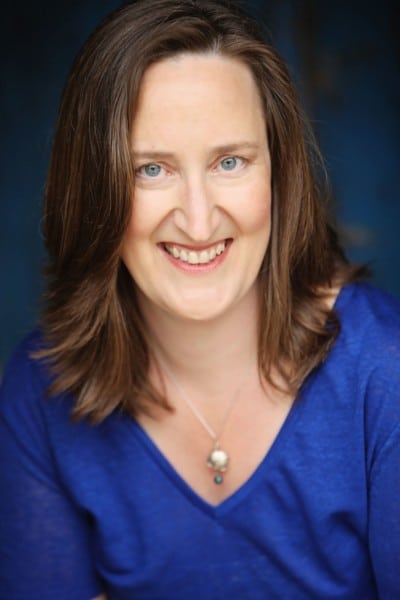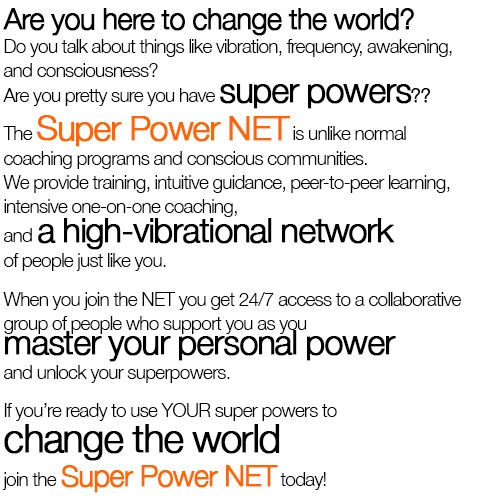
Hello everyone, this is Tonya Dawn Recla, your SuperPower Expert, and I have with me a delightful woman today, Dr. Heather Clark, an intuitive coach, healer, speaker, author. I love the fact that she comes out of the pharmacy space. So she got her Doctorate in Pharmacy in ’97 and she incorporates that really solid founded healing, medical, and pharmacology kind of perspective into the world of helping healers and change agents, specifically as it relates to burnout, but mostly as it relates to freedom. You know, this quest that we all seek of we just want to do our thing in the world. We just want to do it and we want to help people. We want to do all this stuff, but how do you do that when you’re managing all of these other components? And so I love the fact that she brings such a wealth of knowledge and wisdom into that dialogue.
We’re gonna talk today about how to love yourself to freedom. Such a beautiful, beautiful conversation with solid, solid foundational roots within it. So I’m excited to share her with you. Without further adieu, please join me in welcoming Dr. Heather Clark to the show. Welcome, Heather.
I’m so glad you’re here with us.
Thank you, I am so glad to be here.
Yay. It’s gonna be such a fun conversation. Very cool, so let’s jump in and just talk. We talked a little bit before the show about some of our super powers and how we evolved those, but what are your super powers?
I actually, I have a few. And don’t talk when they come to mind.
You don’t say. I just have a few.

I’m great at teaching discernment.
I’d say probably the top one is I can read and interpret energy and help people shift it. And now that I’m aware of that super power, I can do it consciously, so it works better for, certainly me, but everybody else too. I’m great at teaching discernment and teaching people how to really tap into their own discernment instead of, “Well, I don’t know, this is just the system I follow.” It’s like, well, how can you at every point really tune into what works for you and to be able to tell what’s true for you.
Perfect.
Which is awesome.
Yeah, it is awesome. We talk about your individual resonance, that was a component that I thought was so key as well. We’re so bombarded with information and what’s right or what’s wrong and if we could do research all day long and we could pretty much find anything to justify whatever viewpoint we want, and at the end of the day that was the only thing that I saw that was the constant. Your constant guide, your constant truth was was that discernment, that internal resonance piece.
But I want to go back a second because it just rolls off your tongue. I can read and interpret energy. But you come from the world of pharmacology. So how did you get to the space where saying something like that on a public interview was normal for you?
Great question. Yeah, so the short version is did all the pharmacy thing. I got burnout and not in a … Well, I sorta lost interest in this kind of a way, in the I can’t get off the couch kind of a way when I would load the dishwasher it was cause for celebration and then I would take a nap. It was a big deal. So, when I recovered, it occurred to me I could help other people recover. So I was doing that. I was getting really good results, and I took some business coaching so I could build the business to help people recover from burnout.
So I was doing a lot of things I would not normally do. And I had three people in 10 days say, “Well, Heather, you know you’re psychic, right?”
Uhhhh, no.
So the first person I was like, “Um, yeah whatever, so anyway.”
You’re like that’s cute.
Just moving on, yeah. The second person, I feel a little bad. I got a little combative. I said, “I don’t know what you mean by that. That can’t be true.”
Take it back. Take it back! This is science.
Exactly, that’s not a thing. And then she’s like, “Well, you know it’s pretty much what that is. It’s not seeing the future.” ‘Cause I had pictures of now I’m gonna have to wear a turban and long, flowy dresses.
I need a crystal ball, what’s going on here?
And she’s like, “No, it’s just reading and interpreting energy.” I was like, “Oh, well I do that, but yeah whatever.” And I ignored immediately. And then by the third person, I was like, “Crap. Now I’m gonna have to look into this.”
I love it.
And it wasn’t from a, “Let me explore my gifts” space. It was from a “Let me prove to you this is not a thing so we can move on.” And it was a thing. And I tell you what, it was the most interesting experience because it was terrifying, and I have never felt so alive. When I am in my work I am just in the zone, so much joy. I was like, you know what, I choose this. And if that means that I’m crazy, I guess I’m okay with that. And then to get more comfortable, I stood up in front of a group of people at a presentation and told this story for the first time in public. And I’ve gotta tell you, there was a lot of power of speaking your truth in front of a group of people.
So much, and it’s so funny because it’s probably one of those situations where everybody was like, “Um, yeah we knew that.” And you’re like, “No, you don’t understand. I am psychic.” And it’s like, “Yeah, got it. We knew that. It’s cool. We’ve always known that.” And I tell people that it’s so funny, every time we go through those phases in our existence, and we talked about it a little bit before the show, this concept of getting more and more and more clear around things.
But it always feels like you’re standing on the brink of this chasm. And it’s like am I really gonna leap? Am I really gonna jump? Am I gonna do this thing? And you kinda eventually you ought to get shoved off or you actually do take a flying leap, and you look back and it’s like this itty bitty little crack, and it was like oh I just stepped over it. And everyone’s like, “Yeah, we’ve always known you were here.” Wait no, you don’t understand. This was a really big deal. And they’re like, “Um, no, not really.” And it’s just like how are we so skewed, but you really hit it on the head, the idea that you had a persona.
You had this who you were in the world and it’s usually what I see it is very rooted, very practical, very respectable, whatever professional whether it be pharmacology or my world counter-intelligence. There’s always this thing that’s like, no I’m legit. I worked really hard to get to this place, and it feels like we’re gonna have to sacrifice that, but what I’m seeing over and over and over again after two years of doing these interviews is that it’s the accompaniment. It’s the rooted foundation that allows us to have stability when we can stand on top of that and then expand out into these amazing gifts. And so I love the fact that that’s the audience that you work with. It’s the healers and the change agents, and I would predict that most of them had similar experiences in the sense of, “Wait, I’m not this in the world.”
Well, I’ll speak for myself. I had my own stereotypes and biases and everything else about what that would mean and people not taking me seriously and all this other stuff. But I think that is the pathway. Reconciling that dialogue is the pathway to freedom.
I completely-
And I love that we’re linking that together.
Yes, absolutely.
That’s so funny. I’m like, the parallels are just hilarious. I’m like here I was a counter-intel agent like reading tarot cards, ’cause I’m like da-da-da-da-da. And I was joking ’cause this conference that we’ve been in, where we teach and where the vetting solution of our business really serves the CEO space community. We just got back from that conference, and really where I got my start. I call myself an accidental coach ’cause it was never my conscious intention, but people kept referring to me. They’re like go talk to Tonya and just tell her. You don’t need due diligence.
And so people would be like, “I want to talk about your other business.” And I was like, “What?” It was like I was running this illicit operation in the background. I’m like, no, I don’t want to be psychic or intuitive or any of those things. So I can completely appreciate where you’re coming from.
And I think we probably do have a similar experience in that it’s likely you worked with people who a little bit made you wrong for that. In the healthcare profession, it was my experience anyway, that when you were tuning into the energy and affected by energy, it’s considered unprofessional. Like you’re supposed to be able to completely shut off that part of yourself.
Oh, of course, yeah.
What you’re supposed to do, which no.
Well, you know, it’s so funny that you would say that ’cause in the medical industry, absolutely. There is that clear delineation, and there’s. And I can see where that would be a conundrum. In my world, it was so bizarre because it’s not like the government didn’t play with these things. We’ve got things like remove viewing and men who stare at goats, and calling psychics in on cold-cases, but there was this clear delineation of what was acceptable woo-woo and what’s like stick to the facts. So even a concept like intuition, it’s shocking to me how many people have a bias about intuition. There is this undeniable this energy source or this information source that informs really solid decision making, but if we can’t attribute it to straight logic then it’s somehow flawed.
And so that was what I had to grapple with, but wait a second, there’s all these ways in which it is acceptable, but this way isn’t? And I can contend that most of that was coming from within me. The projection often reflects just our own internal conflicts, and I think that was more of what was happening was I was uncomfortable. I wasn’t sure.
I remember interviewing Danielle Egnew, and she talked about how coming out of the closet as a psychic was far worse than coming out of the closet as a lesbian. She was like, “That was easy comparatively, but to be this other person who had these gifts was very trying.” So I’ve always run that through my memory bank. But that was what was bizarre about me is there was no clear delineation of what was acceptable “out there-ness”. What was okay and what wasn’t.
Well, I could pretty much guarantee that at least in my profession, this is not only not acceptable, because let’s back up a little bit. When I first started helping people with burnout, my primary tools were using supplements to help people feel better and to speed up recovery. That was considered borderline heresy.
Yep.
And I’m like, “Ooh, really? Supplements bother you? Just wait.”
You ain’t seen nothing yet.
Now it’s like we’re on ICU rounds and I’m like, “Have we investigated? I think they’re having pain. Have we investigated the abdomen?” And they’re like, “What are you talking about?” And they did a CT scan and uncovered this huge problem and then they got treatment for it. But, it would be unprofessional for me to say, “What was an intuitive hit?” So you’ve gotta use words like it was just a guess.
Yeah.
Like okay.
I’m just really smart. Well, and that’s really what people, when people ask me did I always know about these gifts. It was like, I really truly just thought I was really smart. That’s what I was told, and in retrospect it’s like that was an acceptable way to explain it. You just happen to be more intelligent than the average person, so gifted education, honors, college, all that stuff, that was acceptable. And it was applauded and it was lifted up in our society. And I watched that with our daughter, who absolutely there’s that intelligence there, but there’s also this other form of intelligence in being really careful about not discrediting that or weighing one over the other.
And I probably tip in the other direction too much. Like, “Oh no, forget thinking. You don’t really need that” Like, “Let’s look over here.” But I think just honoring all of the ways that we consume information and back to the discernment piece you were talking about, and I think we all have our own secret sauce about how we put those puzzles together. Whether it is through visions or hearing or straight knowingness or faith or prayer, mediation, or however we get that and are comfortable working through it. And being okay with that.
Gosh, it’s so crazy. I would hope that we’re closer to shifting into a space where we can say, like I just knew. Essentially their higher self told me that this was what was going on and I listened. It’s not rocket science, but it is so far out there.

I no longer allow others to shame me.
Yeah, it is. It’s less challenging now because I’m really creating my own space, and I’ve got new ways of being, and I don’t feel beholden to obligation, and I don’t allow people to shame me into things. But at least in the healthcare environments that I was in, it’s filled with obligation. It’s a very shame-based system. And any deviation from what’s considered the correct answer, really makes a person look like a crack pot, even if it’s an interesting idea. Even if you can point to research. There’s a fair amount of research that shows that you can control certain types of epilepsy with diet. Excuse me? What? Why are we not talking about that? So, it’s an environment with different drivers. And it takes quite a bit to really choose you. Not only in that environment, but maybe your environment is your family environment or something like that. I can be real hard to. So that’s part of where I’m able to help people with the discernment. What’s yours? What’s somebody else’s? What’s your real goal here? How would you like to handle it? And it can really help a person walk through those really difficult situations.
Well, and I think that it’s important to point out too that it’s challenging at best to figure out where your external environment and your internal environment meet up. And oftentimes, just like what your experience was, and my experience were, as soon as we claim it, and we don’t need the friction from people doubting us or questioning us or anything else. When we develop that internal conviction, everyone else kinda calms down and they accept it. So, I’m always fascinated with how much of it is a reflection of what we need to see within us? How much of it are truly obstacles that we need to overcome? And I contend that it’s all an internal game. That the reflections solely serves to reflect that to us. But I think there are certain stages of that process where it’s valuable to be able to see it from outside of yourself first. And that’s kind of how we’ve had success walking people through that.
Anyway, great conversation. I’m really excited to explore this a little bit more. We’ve been talking today with Dr. Heather Clark. Where can people go to find out information about you?
My website is vibrantagain.com. And for those who are interested, if you would like to apply to speak with me, you can go to realclaritycall.com, and we can have a brief conversation to get your connected with something that may be really helpful for you.
Beautiful, beautiful, well I appreciate that. We’ve been talking today, as I said, with Dr. Heather Clark about how to love yourself to freedom. And stay with us ’cause we’re gonna take a quick break and when we come back, we’re gonna dive into some really practical ways that you can apply on this wealth of information that she has gathered over the years, so stick with us and we will be right back.
To listen to the entire show click on the player above or go to the SuperPower Up! podcast on iTunes.
Podcast: Play in new window



